Write your paper in 3 weeks
In this series of 6 live online sessions, Prof. Amanda Salis will walk you through a step-by-step process designed to help you write your research paper in 3 weeks.
Testimonials
- (This training was) so helpful — sparked bursts of clarity every time. I really wish that I’d been told about this workshop during my PhD orientation. This is like quantum writing — it saves that much time. It’s great having clear steps and a system I can rely on. I got clarity around how all the papers and chapters of my PhD fit together. Being instructed to write one paper at a time and ignore the rest never worked for me. I don’t think hierarchically — I see the whole dataset interconnected in my mind; I needed to see the interconnected papers the same way. You (Amanda) are the first person who has given me permission to get clear about all the key messages first, and then write each paper from there. Jade Barclay, PhD student, Sydney, New South Wales, Australia
- (What I liked most about this training was) constructing a paper from a linguistic perspective. The Zooms were interesting, and I found Amanda Salis’ comments (on my paper) very helpful and insightful. Sarsha Yap, New South Wales, Australia
- (What I liked most about this training is that) it is very clear. Very useful for masters or PhD students. It is also very useful for early career researchers. I hope this kind of research training is able to run regularly. I will recommend my masters and PhD students to attend. Thanks. Cindy Wang, Armidale, New South Wales, Australia
- (What I liked most about this training is that it is) very clear and easy to follow. Something that seems complex is broken down into simpler components. Mariam Mandoh, PhD student, Sydney, New South Wales, Australia
Session 1 of 6 – Take-home message
Undertake steps to help you define, draft and refine your paper’s take-home message. Doing this before you write your paper will shave hours off the paper-writing process.
Session 2 of 6 – Flowing writing, Materials / Methods
Implement ways to make your writing flow like water, and practice while writing your Materials / Methods section.
Session 3 of 6 – Results
Prepare a Results section in which readers can see the relevance and importance of your data, with crystal clear display items, legendary legends, and directive text.
Session 4 of 6 – Introduction
Learn exactly what type of information to put into your Introduction section (and exactly what to leave out) to make it compelling and aligned with your take-home message.
Session 5 of 6 – Discussion
Ensure your Discussion section contains the 6 information types that linguistic research has uncovered in published Discussions.
Session 6 of 6 – Title and Abstract, wrap up your paper
Encapsulate your paper into a catchy title, and write your Abstract. This online session also covers things to watch out for as you finish your paper, integrate feedback from co-authors, and submit.
Who is this series of online sessions for?
This series of online sessions is for anyone from any field who has research data they would like to write up as a paper with any of the following structures:
- IMRaD: Introduction, Materials / Methods, Results and Discussion
- AIMRaD: Abstract, Introduction, Materials / Methods, Results and Discussion
- AIRDaM: Abstract, Introduction, Results, Discussion and Materials / Methods
- AIM(RaD)C: Abstract, Introduction, Materials / Methods, repeated Results and Discussion, Conclusion
- AIBC: Abstract, Introduction, Body sections, Conclusions
- Honours students
- Higher degree research students (e.g., Masters and PhD students)
- Junior postdoctoral fellows
- Anyone who wants to improve their confidence, efficiency and impact in writing original research into papers
Prerequisites
The following prerequisites will help you get the most out of this series of online sessions.
- You must have a set of analyzed research data ready to write up as a paper. If you are still collecting research data for your paper, or if you have not yet finished analyzing and interpreting your data, your opportunities for participation in the assigned writing tasks between online sessions will be limited.
- You must have time to work on your paper between sessions. As a general guide, you will need a minimum average of 3 hours per day for 3 weeks (i.e., a minimum of 63 hours in total) to complete a high-quality draft of your paper that is ready for feedback from your co-authors.
- You will need input from your co-authors in the 10 days after Session 1 and before Session 4. Specifically, you will need to show your co-authors the draft display items (e.g., figures and tables) that you plan to include in your paper, as well as your draft and then refined take-home message for your paper, and you will need their agreement that you are on the right track. This is best achieved in one to three face-to-face or video meetings with your co-authors, but can also be achieved via email communications. You may want to schedule some time with your co-authors in the first 10 days of the training to help ensure you get the strategic feedback you need.
What you need at each online session
- A set of analyzed original research results that are ready to be written up as a paper.
- Your draft to date of your original research paper / systematic review (not a narrative review). This is optional for Session 1 of 6, but for Session 2 of 6 onward you will need to bring your draft. Registrants will receive a template to help them format their draft paper.
- An electronic copy (PDF) of an original research paper or systematic review – with or without meta-analysis (not a narrative review) on a topic similar to your own, from a journal you’d like to publish your research in.
- Access to software that enables you to quickly add text and highlighting to PDFs, like the example shown here. This example was done with Adobe Acrobat Pro DC.

